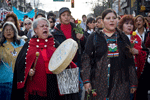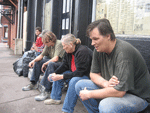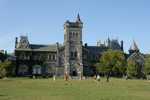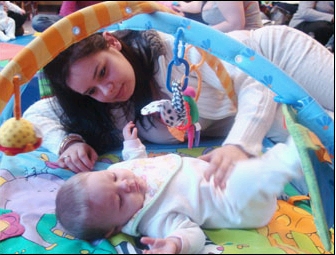Canada
Published on Wed, 2011-11-16 08:06
The richest 20% of Canadian income earners are responsible for almost double (1.8 times) the greenhouse gas (GHG) emissions of those in the lowest income group, says a new study released this week by in Ottawa by the Canadian Centre for Policy Alternatives (CCPA), one of the focal points of Social Watch in that North American country. |
Published on Wed, 2011-10-05 09:13
The Sisters in Spirit, part of the Native Women’s Association of Canada, dedicated this Tuesday, like every Oct. 4 since 2005, as a day of vigil to honour the lives of missing and murdered Aboriginal women and girls, with rallies and other events in nine provinces including Ontario, Alberta, British Columbia, Quebec and Nova Scotia as well as the Northwest Territories. |
Published on Thu, 2011-09-29 12:57
Poverty costs tax-payers of the eastern province of New Brunswick more than $2 billion (some U$S 1,9 billion) a year, according to a report released Tuesday by the Common Front for Social Justice and the Canadian Centre for Policy Alternatives, one of the focal points of Social Watch in the North American country. |
Published on Thu, 2011-09-01 07:23
Sources: Market Wire, CCPA Ontario's system of financing higher education is becoming less equitable and more regressive for families, says a study released this week by the Canadian Centre for Policy Alternatives (CCPA, one of the focal points of Social Watch in this North American country). |
Published on Thu, 2011-07-14 09:24
Source: The Star. Income inequality in Canada is widening as the rich get richer while poor and middle-income people lose ground, says the Conference Board of Canada in a report released Wednesday, according to The Star newspaper. “While the poor are minimally better off in an absolute sense, they are significantly worse off in a relative sense. And where is the middle-class in all of this? These are important questions for society,” said board president Anne Golden in an interview. The 33-year trend which has accelerated since 1993 raises questions about the country’s economic well-being, including whether Canada is using all the skills and talents of its citizens and whether social cohesion and fairness are being undermined, says the report titled "How Canada Performs: Is Canada becoming more unequal?" |
|
Published on Fri, 2011-07-01 11:48
Sources: Canadian Centre for Policy Alternatives, Winnipeg Free Press. Privatizing Manitoba Hydro, electric power and natural gas utility owned by the government of the Canadian province of Manitoba, would result in soaring power rates, job losses and the handover of an essential service to wealthy, out-of-province owners, union leaders warned this week quoting a report publisheb by the Canadian Centre for Policy Alternatives (CCPA), a focal point of Social Watch. |
|
Published on Fri, 2011-06-03 10:23
The North-South Institute (NSI, focal point of Social Watch in Canada), with support from the Canadian International Development Agency (CIDA), has convened the 2011 NSI Forum, that will take place in Ottawa on Monday 20th and Tuesday 21st under the title “The Future of Multilateral Development Cooperation in a Changing Global Order”. |
Published on Thu, 2011-05-05 08:07
A recent report coordinated by the Canadian Labour Congress (CLC) and Canadian Feminist Alliance for International Action (FAFIA) highlights the sharp decrease in support for women’s issues under the Stephen Harper government, whose Conservative Party's won its first legislative majority since 1988 on Monday, assuring his re-election. |
|
Published on Mon, 2011-04-25 07:41
Source: Canadian Feminist Alliance for International Action (FAFIA) Women in Boznia and Herzegovia now have a greater chance of surviving childbirth than women in Canada, according to the Feminist Alliance for International Action (FAFIA), focal point of Social Watch in that North American country. |
|
The Canadian Government has studiously ignored the lessons of the recent global economic crisis and adopted a “business as usual” approach. Committed to a quick return to the dominant ideology of the past two decades – more market, less government – it has refused to undertake the structural reforms necessary to stabilize the economy and promote human development within Canada and its economic partners. Deficit reduction is being achieved by further cuts to social spending. While stock markets and Gross Domestic Product (GDP) are recovering, further backsliding is expected in equality and development levels at home and abroad.
|
SUSCRIBE TO OUR NEWSLETTER









